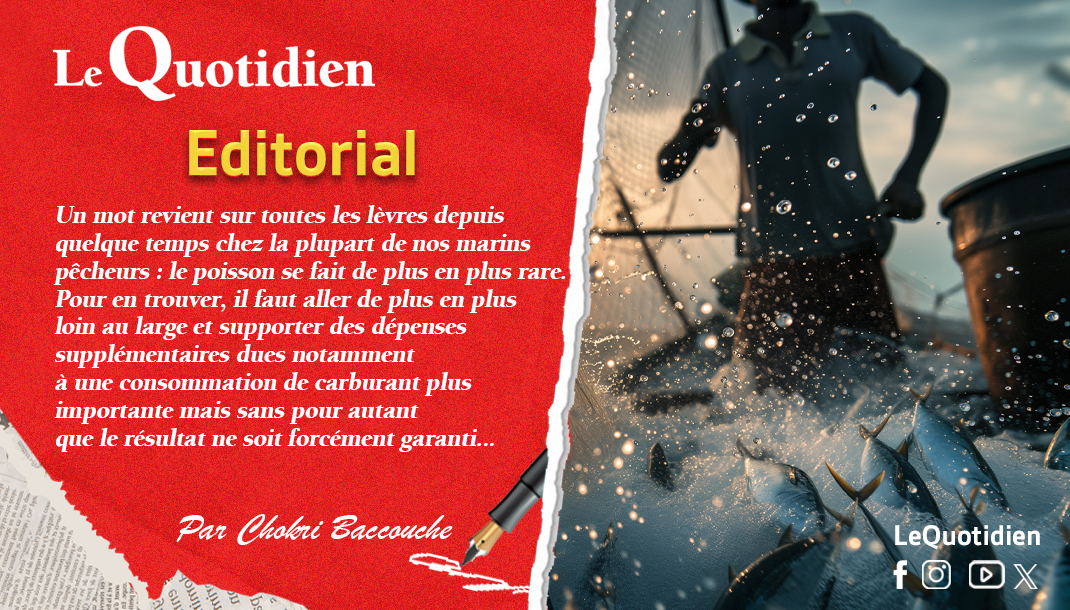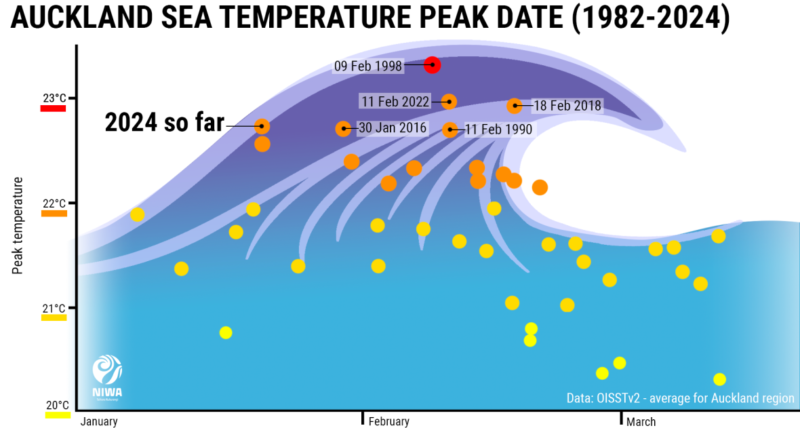One word keeps coming up again and again among most of our fishermen: fish are becoming increasingly scarce. To find any, one must go farther and farther offshore, bearing higher costs, especially in fuel consumption — without any guarantee of results. Most of the time, trawlers and artisanal fishing boats return to port with empty or nearly empty holds.
Why has the fish, which supports thousands of families, disappeared from our coasts? Overfishing, of course, is one key reason — marine resources are being depleted. The frequent use of fishing methods that are strictly banned, which ravage the seabed and prevent the regeneration of fish stocks, is also frequently blamed.
This issue — or rather, this insidious affliction — is nothing new. It has been diagnosed for ages, but the cure has yet to be administered. Partly due to administrative laxity, and mostly because of a widespread mindset in our society: “After me, the deluge.”
There are fewer fish now due to overfishing and irresponsible, unorthodox practices by some trawlers. But that’s not all. Pollution is also wreaking havoc, causing significant damage both economically and environmentally.
The situation on the ground is alarming: every single day, thousands of cubic meters of heavily polluted, toxic water are discharged directly into the sea. These untreated wastewaters contain a cocktail of chemical components that are not only extremely harmful to human health but also devastating to marine flora and fauna.
The recent environmental troubles in the Gulf of Monastir are a case in point. Massive dumping of polluted waters has led to foul smells, dead fish, and waves of mud along this coastal area. Once known for its flourishing fisheries, the Gulf of Monastir has unfortunately become an open dumping ground for the textile industry.
Most of the 500 companies in the area, especially those treating denim jeans, dispose of their wastewater into nearby rivers or directly into the pipelines of the National Sanitation Office. The core of the issue — a critical one indeed — is that the volume of wastewater received by the region’s sanitation facilities far exceeds their treatment capacity, leading to an overflow of thousands of cubic meters discharged straight into the sea.
As paradoxical or absurd as it may seem, textile factories are legally required to operate their own pre-treatment stations. But due to the high cost of these facilities, many industrialists choose to violate regulations and opt to pay fines instead. Profit and economic interest take precedence over environmental concerns.
So yes, cheap and competitive jeans are produced, but at the expense of other industries — such as fishing and tourism — that feed thousands of families. For proof, a bacteriological water analysis conducted in 2011 in the Monastir region revealed a significant presence of bacteria and parasites in the sea near Ksibet El Médiouni and Soukrine. The ecological disasters of 2006 and 2011 were the final straw for residents and fishermen. According to locals, the sea had turned red and the air was unbreathable due to dangerous emissions of hydrogen sulfide gas.
In short, Monastir — and, truthfully, many other coastal regions — are suffering deeply. A silent and deadly affliction named pollution is slowly killing marine life and severely impacting public health.
It becomes clearer now why fish are fleeing our shores and why the number of beaches declared unsafe for swimming continues to rise each year. In the face of this environmental catastrophe, there is an urgent need to take decisive action before it is too late. Otherwise, we will be forced to pay a heavy economic and social price — the loss of thousands of jobs and a serious decline in quality of life.
The situation is critical, and the stakes are far too high for us to afford delay or indifference. Turning a blind eye to the creeping danger of pollution is no longer an option — it threatens both the present and the future of our country.
Source: lequotidien




